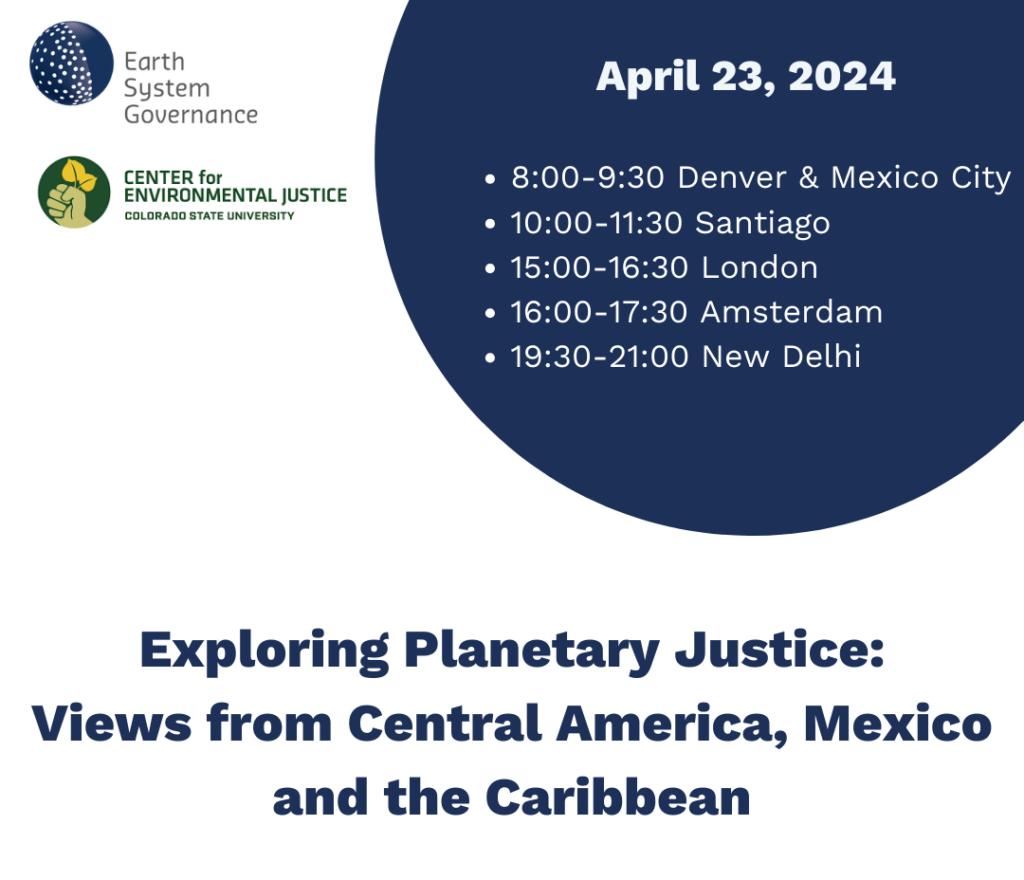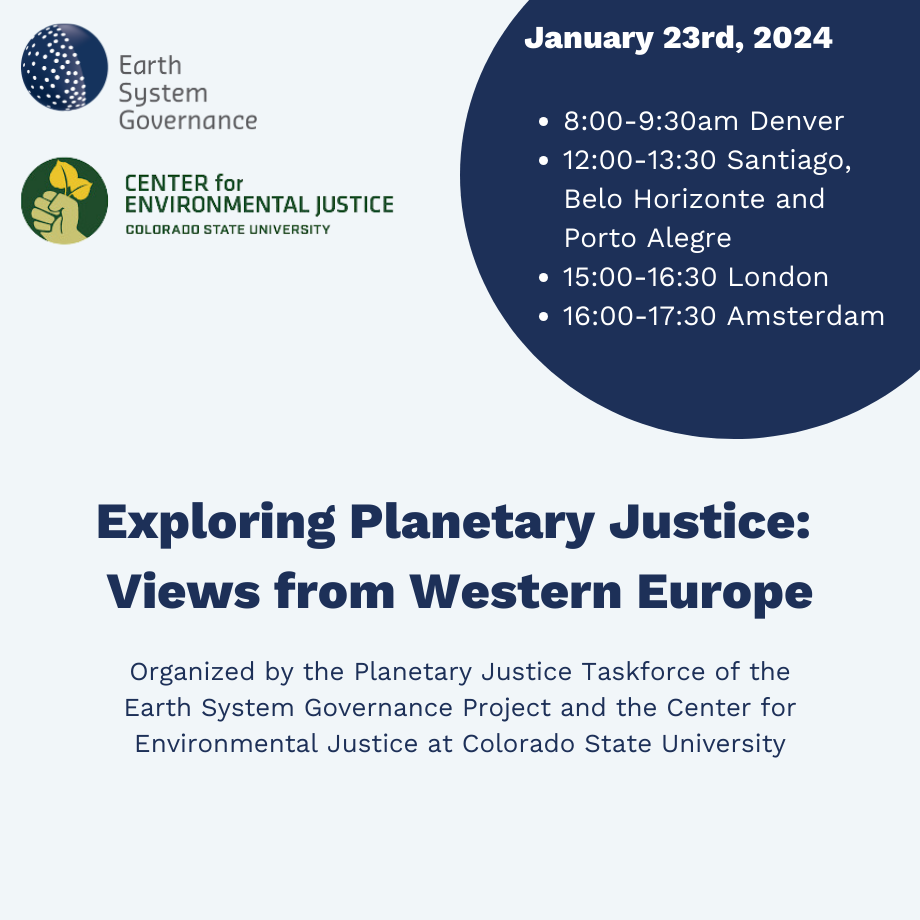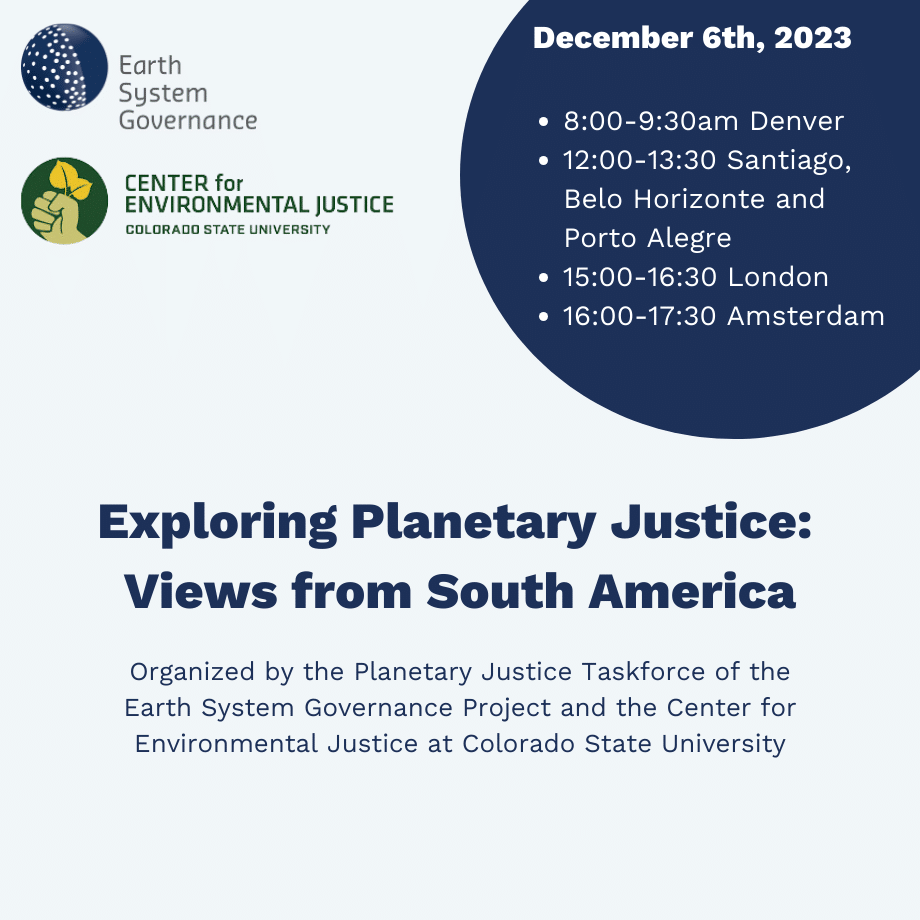We invite PhD students and Early Career Researchers to participate in a Summer School to precede the 6th Annual Earth System Governance Conference, co-hosted by the Australian National University and the University of Canberra.
Dates: 9-12 December 2015
Instructors (preliminary list):
Prof John Dryzek & Dr Simon Niemeyer (University of Canberra), Prof Lorraine Elliot, Dr Kyla Tienhaara and Prof Lorrae Van Kerkoff (Australian National University), Prof David Schlosberg (University of Sydney), Prof Karren Hussey (University of Queensland), Dr Louis Lebel (Chiang Mai University), Prof Frank Biermann (Utrecht University)
Themes Covered:
The Summer School will address the general theme of Earth System Governance and in particular its methodological challenges. Students will study novel ways of integrating insights from earth system analysis and governance research, guided by internationally leading researchers. The School will help students to better understand the causes of global change in an integrated manner and at the same time to develop options for the governance of sustainable development at all levels.
The Earth System Governance Project prioritizes five interdependent analytical problems. These are the problems of the overall architecture of earth system governance, of agency beyond the state and of the state, of the adaptiveness of governance mechanisms and processes, of their accountability and legitimacy and of modes of allocation and access in earth system governance. The proposed Summer School will be inspired by and structured along four of the pillars of this analytical framework: architecture, agency, accountability, and allocation and access.
Architecture
The first analytical problem – the architecture of earth system governance – includes questions relating to the emergence, design and effectiveness of governance systems as well as the overall integration of global, regional, national and local governance. Core questions include: How is performance of environmental institutions affected by their embedding in larger architectures? What are the environmental consequences of non-environmental governance systems? What is the relative performance of different types of multilevel governance architectures? How can we explain instances of ‘non-governance’? What are overarching and crosscutting norms of earth system governance? In the Summer School we will focus on regional governance structures in the Asia-Pacific region and their place in the overarching global architecture.
Agency
Large and complex problems, such as climate change, challenge the capacity of traditional state structures of governance. Moreover, this capacity varies greatly among nation-states, with developing country governments typically dealing with substantial restraints on resources and limited access to information and expertise. Cooperation with other states, but also with local, domestic and transnational non-state actors, appears to be imperative. Additionally, many institutions of environmental governance have already emerged ‘beyond the state’; that is, they are already inclusive of, or even driven by, non-state actors such as corporations, scientific networks, non-profit organizations, banks, etc. In some instances, these actors have taken on authoritative roles in which they substantively participate in the creation of rules. As such, they can be considered ‘agents’ of earth system governance. In the Summer School, lectures will identify the key agents of earth system governance and their sources of authority.
Accountability
Accountability is closely related to the legitimacy of governance processes, which in turn substantially determines the compliance-pull and effectiveness of rules. Traditional forms of democratic accountability that operate when governments are the sole or central actors do not apply when new forms of governance emerge of a public-private or private nature. Issues of participation and inclusiveness, transparency and openness are important in all forms of governance but become particularly critical when state actors are marginalized. Lectures in the Summer School will address the potential sources of accountability in earth system governance, the role of transparency in fostering accountability, and how mechanisms for enhanced accountability enhance or detract from the effectiveness of governance systems.
Allocation & Access
Earth system governance is, as is any political activity, about the distribution of material and immaterial values. It is, in essence, a conflict about the access to goods and about their allocation – it is about justice, fairness, and equity. The novel character of earth system transformation and of the new governance solutions that are being developed puts questions of allocation and access, debated for millennia, in a new light. The Summer School will address questions such as: how can we reach interdisciplinary conceptualizations and definitions of allocation and access? What (overarching) principles underlie allocation and access? How can allocation be reconciled with governance effectiveness?
Format:
The Summer School is structured with morning lectures (two one and a half hour lectures with a half hour break in between), followed by lunch. The morning lectures will cover key theoretical and methodological issues associated with each analytical pillar. In the afternoon sessions, students will take empirical modules. These modules will apply the theories/methods taught in the morning lectures to the flagship activities of the Earth System Governance Project (climate system, water system, food system, and global economic system). Following the empirical modules and a break, the students will be involved in interactive modules on days 2 and 4. The students will take skill modules on days 3 and 5. A draft schedule of the program is included below.
Frequently Asked Questions
How much will the Summer School cost?
There is no fee to participate in the Summer School if you are registered for the 2015 Canberra Conference on Earth System Governance. Lunch and morning/afternoon tea will be provided.
How do I register?
Registration is available through the main conference registration site.
Will budget accommodation be available?
Budget accommodation (starting from $71 per night, including breakfast) will be available at Ursula Hall at the ANU for the duration of the Summer School and Conference. Students will be provided with bus transport to and from Ursula Hall and the University of Canberra each day of the Summer School.
For more information please contact us at esg2015@anu.edu.au



